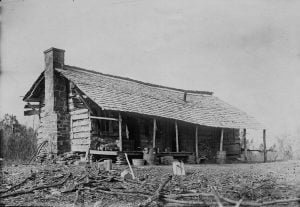Opening of the Fort Coffee Academy
On the ninth day of February, 1844, the school opened with six students from the Pushmataha district; they presented certificates of appointment signed by J. Folsom, chief, and S. Jones, Trustee. On the following day a number of pupils came from the Puckchenubbee district with certificates signed by James Fletcher, chief, and P. P. Pitchlynn, Trustee; also from the Moshulatubbee district, with certificates from Nat Folsom, chief, and Thomson M’Kenny, Trustee. In a few days we had received thirty pupils into the school to be clothed, fed, and taught. In addition to these we had consented to teach all the … Read more


